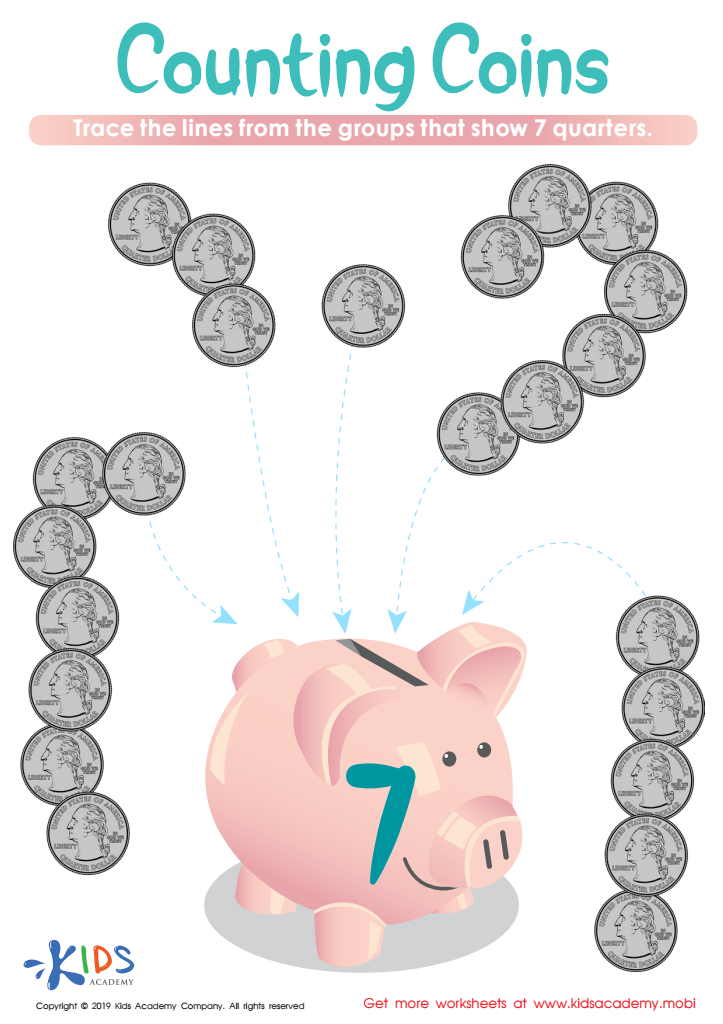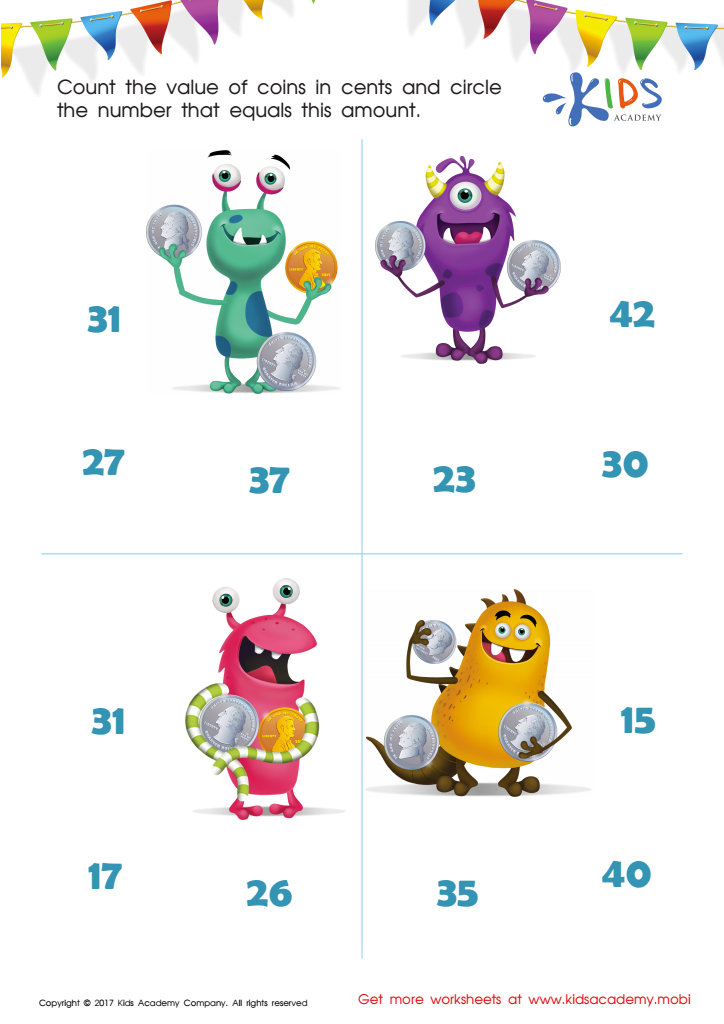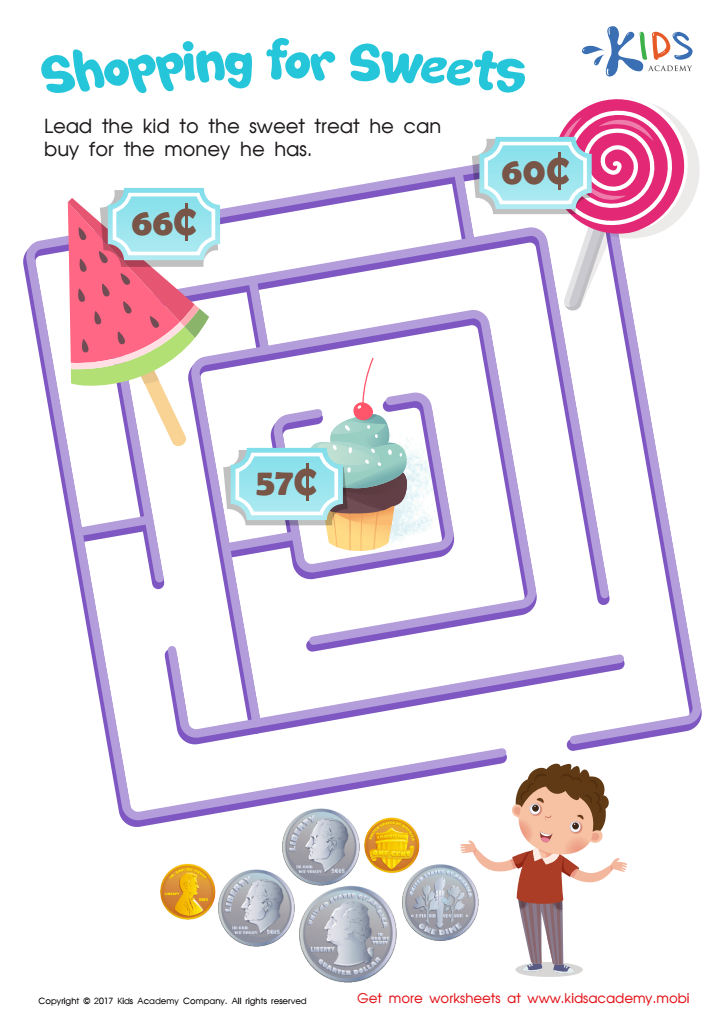Addition skills Money Worksheets for Ages 4-6
3 filtered results
-
From - To
Our Addition Skills Money Worksheets for ages 4-6 provide young learners with a fun and engaging way to practice addition using everyday scenarios involving money. Featuring bright, colorful images of coins and bills, these worksheets make the concept of counting and adding money easy to understand. By completing these activities, children will develop fundamental math skills, enhance their ability to recognize and count currency, and improve their financial literacy. Ideal for both classroom and home use, these worksheets encourage interactive learning through practical examples, setting a strong foundation for advanced math proficiency. Download now to give your child a valuable head start!


Counting Coins Worksheet


How Many Coins Money Worksheet


Shopping for Sweets Worksheet
Parents and teachers should prioritize developing addition skills, specifically related to money, in children aged 4-6 because these foundational skills are crucial for their future academic success and everyday life. At this young age, children's brains are highly receptive to new concepts, and introducing them to basic arithmetic in a fun, engaging way fosters a positive attitude towards mathematics. Understanding addition through money helps children grasp the value of currency and the concept of exchange, essential life skills for managing finances later on.
Furthermore, integrating money into math lessons provides a real-world context that makes learning meaningful. Children begin to recognize and identify coins and bills, improving their numeracy skills as they count and add them. This type of hands-on learning consolidates their grasp of numerical relationships and enhances both their cognitive and practical abilities.
Additionally, developing these skills early on builds confidence. A child who can handle money and perform basic transactions is more likely to feel competent in other academic areas. This self-assurance can motivate them to tackle more complex problems with a positive attitude. Therefore, focusing on addition skills and money not only provides immediate educational benefits but also prepares children for lifelong success and independence.

 Assign to My Students
Assign to My Students
















